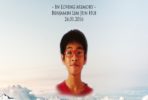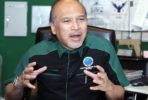It had started with a fever, rashes, then fatigue. When the symptoms persisted for weeks, alarm bells went off for Daniel.
The 28-year-old homosexual man got himself tested for human immunodeficiency virus (HIV) infection. The results were positive.
Fortunately for him, timely diagnosis and treatment have helped him keep his condition under control. Currently working as a senior executive in the public sector, Daniel is able to live a normal life. Besides his day job, he also juggles part-time degree studies and volunteer work.
THE NUMBERS IN SINGAPORE
Not everyone learns about his or her HIV status early enough. There were 155 new cases of HIV infection among Singapore residents in the first six months of this year, showed the latest figures from the Ministry of Health. Nearly half (49 per cent) had late-stage HIV infection when they were diagnosed — an increase from 41 per cent last year. Currently, about 0.1 per cent of the population in Singapore is living with HIV.
Dr David Lye, senior consultant at the Institute of Infectious Diseases and Epidemiology at Tan Tock Seng Hospital (TTSH), said people with a late-stage HIV diagnosis face a higher risk of death, even if they receive treatment as soon as possible.
The virus, which is spread mainly via sexual transmission in Singapore, wreaks havoc on the immune system. It may eventually cause infections, cancer, memory loss as well as heart, liver and kidney diseases.
The two biggest groups at risk here are heterosexual men who engage in casual or commercial sex, and men who have sex with men.
SEEK TREATMENT EARLY
A person with HIV is said to have Aids (Acquired Immune Deficiency Syndrome) when his CD4 (a type of white blood cell) count is less than 200, said Dr Lye. This increases his risk of infections and death.
On the other hand, people who detect their condition soon after the infection and start on HIV medication immediately can expect to have a normal life span. “Detecting HIV as early as possible and starting treatment early can preserve the person’s immune system. Adherence to treatment and medical follow-up ensures a healthy long life,” said Dr Lye.
TTSH sees 70 per cent of HIV patients in Singapore. More than 95 per cent of patients on HIV medication are doing well, said Dr Lye. Stigma and misconceptions about the disease prevent at-risk groups from testing and seeking treatment early.
Dr Lye shared that even with a HIV diagnosis, some patients do not seek treatment because they think they will not be able to afford HIV medication.
“Medisave can help cover the costs of medication. For patients with limited resources, Medifund can provide coverage too,” said Dr Lye.
People with HIV can use up to S$550 per month from their Medisave to pay for their HIV medication. The cost of medication can range from S$300 to more than S$800, depending on the individual’s condition, said Ms Lin Jingyi, a medical social worker at the Department of Care and Counselling at TTSH.
Since September, anti-retroviral (ARV) drugs for HIV treatment have been subsidised for lower- to middle-income patients receiving treatment at public hospitals and institutions, as long as the drugs have been assessed to be clinically necessary and appropriate for treatment.
MISCONCEPTIONS AND SOCIAL STIGMA
A common misconception is that HIV is a death sentence or that treatment will fail after several years. That is not true if the patient takes his medication on time daily without skipping doses, said Dr Lye. These misconceptions, coupled with the immense social stigma of the disease, often cause newly diagnosed patients to bear the burden of the disease without adequate support.
Ms Lin said HIV patients tend to live in secrecy because of the fear of stigma and discrimination. “Often, family members may have misconceptions, concerns and fears about HIV and its spread,” she said.
Faced with family rejection, Daniel left home and, for over a year, struggled to come to terms with his illness, the side effects from the medication and dwindling finances without the support of his loved ones. He broke up with his partner shortly after the diagnosis.
Thankfully, he had the support of his close friends, employer and colleagues. He also joined the HIV Orientation Programme and AGAPE Support group at TTSH, where he befriended people with HIV and learned to cope with the condition.
At TTSH, every newly diagnosed HIV patient is referred to a medical social worker, who also counsels and educates family members about the condition.
“Engagement of the patient’s family is important because family support can be a key determinant of how a patient would cope,” said Ms Lin.
Today, Daniel is a peer mentor at the TTSH HIV Orientation Programme, where he motivates newly diagnosed HIV patients. His family has accepted his condition and asked him to move back to live with them.
“The journey might be hard at first, but it will get better. There will always be a light for you in dark times, even when all the other lights go out,” he said.
Source: http://www.todayonline.com







